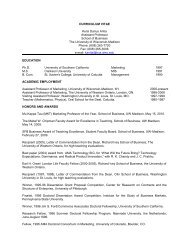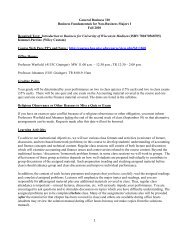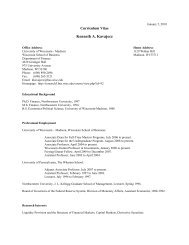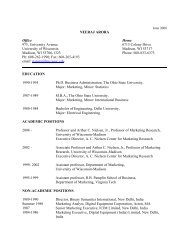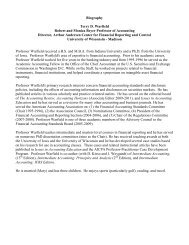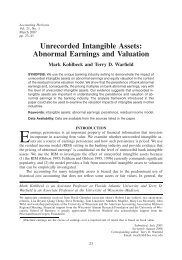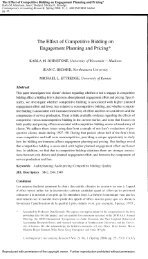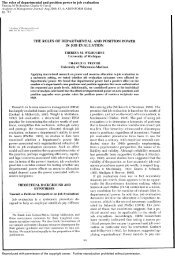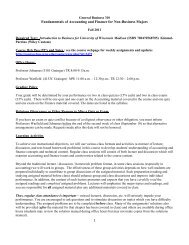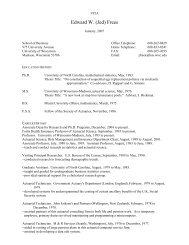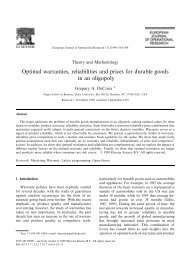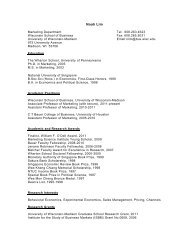family legacies - Wisconsin School of Business - University of ...
family legacies - Wisconsin School of Business - University of ...
family legacies - Wisconsin School of Business - University of ...
Create successful ePaper yourself
Turn your PDF publications into a flip-book with our unique Google optimized e-Paper software.
Family Legacies<br />
members embrace or reject <strong>family</strong> <strong>legacies</strong> in an effort to further our understanding <strong>of</strong> how<br />
individual identities are constituted through <strong>family</strong> <strong>legacies</strong>:<br />
RQ2: In what ways do third generation <strong>family</strong> members embrace or reject <strong>family</strong><br />
<strong>legacies</strong>?<br />
Finally, we were interested in how third generation <strong>family</strong> members pass along or extend<br />
their <strong>family</strong> <strong>legacies</strong> in a situated context. Learning how individuals take meanings from inside<br />
the <strong>family</strong> and how they get used both within and outside the <strong>family</strong>, at times extending their<br />
<strong>legacies</strong> to non-<strong>family</strong> members, is <strong>of</strong> prime importance in narrative research. Thus, we also<br />
explored how <strong>family</strong> <strong>legacies</strong> play out in interaction by analyzing how <strong>family</strong> members extend<br />
their <strong>legacies</strong> both within and outside the <strong>family</strong> to better understand how <strong>family</strong> <strong>legacies</strong> might<br />
be sustained or changed across generations:<br />
RQ3: In what ways do third generation <strong>family</strong> members extend <strong>family</strong> <strong>legacies</strong>?<br />
Family Storytelling and Narrative Identity: Analytic Approaches<br />
Although identity construction is central to narrative theorizing, the process <strong>of</strong> analyzing<br />
identity construction in narrative research has not gone without debate. In addressing our<br />
research questions, we considered salient topics <strong>of</strong> this debate. Recently, much discussion in<br />
narrative scholarship has centered on the big story (i.e., stories told in an interview context which<br />
enable participants to reflect on significant aspects <strong>of</strong> their lives) vs. small story (i.e., stories<br />
derived from everyday interactions) debate as to which represents the most beneficial approach<br />
to narrative analysis (Bamberg, 2006; Freeman, 2006, Watson, 2007). The big story approach<br />
tends to focus more on the content <strong>of</strong> the stories themselves while the small story approach<br />
focuses more on the storytelling process (Archakis & Tzanne, 2005; Bamberg, 2006; Freeman,<br />
2003). Until recently, researchers focusing on identity have generally analyzed “big stories.”<br />
However those advocating a small story approach have raised specific concerns about this<br />
9



